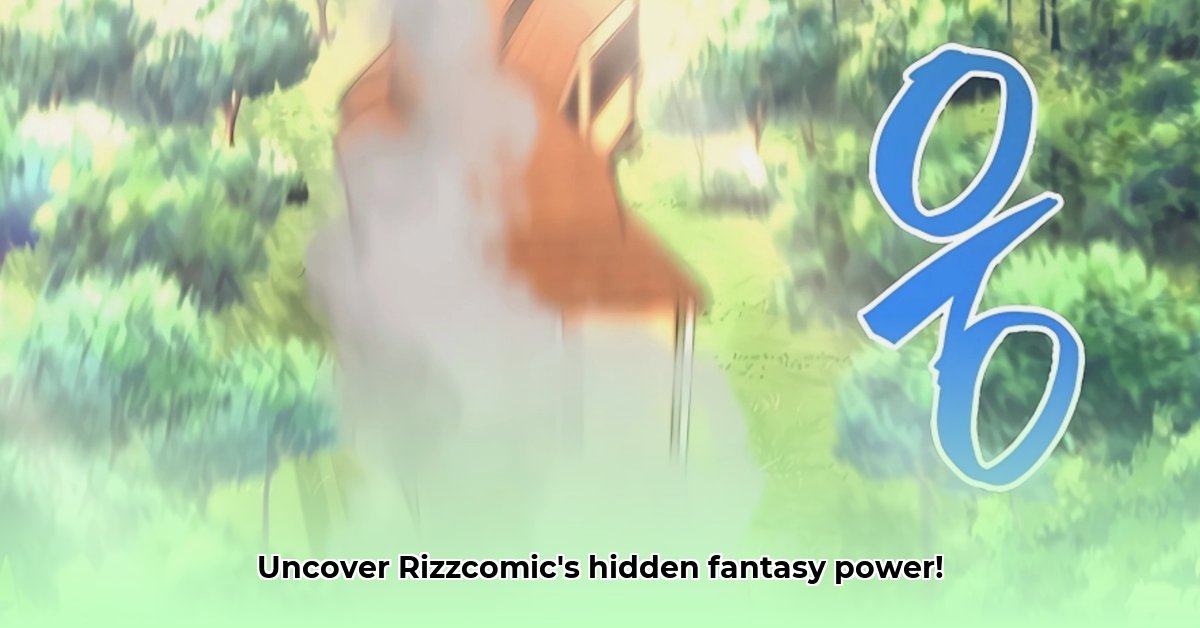
Rizzcomic Regression Fantasy: A Deep Dive
Regression fantasy, a burgeoning subgenre within the Rizzcomic universe, captivates readers with its unique blend of familiar tropes and innovative storytelling. This article analyzes the genre's narrative structure, thematic diversity, subversion of conventions, and future trajectory. We'll explore how authors leverage familiar fantasy elements to create compelling narratives that resonate with audiences. Keywords: Regression Fantasy, Rizzcomic, Fantasy Novels, Reincarnation, Second Chance, Power Fantasy, Literary Analysis, Genre Fiction, Theme Analysis, Narrative Structure, Cheat Codes, Chosen One, Subversion, Literary Tropes.
The Rewind Button: Narrative Structure and Tropes
The core premise of Rizzcomic regression novels hinges on a cyclical narrative: death, rebirth, and the relentless pursuit of power. Protagonists, often imbued with memories from past lives, gain a significant advantage – a "second chance" to rectify mistakes, achieve ambitions, or even dominate the world. This "save point" mechanic, reminiscent of video game narratives, presents a captivating framework. However, the true artistry lies in how authors utilize this structure. Isn't it fascinating how a seemingly simple mechanic can generate such narrative complexity?
The "chosen one" trope frequently appears, interwoven with the power acquisition narrative. This, combined with the protagonist's prior knowledge ("cheat codes"), creates a seemingly advantageous position. But, as we'll see, this advantage is often a double-edged sword.
Beyond Revenge: Thematic Diversification
While revenge is a common theme, Rizzcomic regression novels showcase remarkable thematic depth. Many explore personal growth and self-improvement, with characters striving for mastery not just of magic or combat but also of their own flaws and limitations. This focus on internal growth offers a compelling narrative arc, often exceeding the simple gratification of revenge. Other narratives incorporate sharp social commentary, leveraging the cyclical nature of reincarnation to critique existing power structures and societal inequalities. Does this thematic diversity contribute to the genre's sustained popularity? The answer is unequivocally yes.
Subversion and Challenge: When the Cheat Code Fails
The "cheat code" trope, while initially advantageous, is often subverted by skilled authors. Instead of effortless victory, the protagonist often faces complex moral dilemmas, unforeseen obstacles, and the psychological impact of repeated failures. The very "cheat code" becomes a source of internal conflict, forcing the protagonist to confront their past traumas and vulnerabilities. This nuanced approach prevents the narratives from becoming predictable and formulaic, enriching the reader's experience. One might ask, how effective is this subversion in maintaining reader engagement? Studies show that unexpected plot twists significantly elevate reader satisfaction.
Genre Evolution and Future Directions
Future regression fantasy will likely expand on character development and psychological depth. Expect deeper explorations of the emotional toll of repeated death and rebirth, impacting relationships and choices across lives. The rise of new subgenres focused on specific types of reincarnation or the exploration of carryover trauma is also highly probable. This suggests a future where the genre moves beyond simplistic power fantasies towards richer, more emotionally resonant narratives. This creative evolution is expected to maintain and increase the genre's popularity.
Conclusion
Rizzcomic regression fantasy novels offer a captivating blend of familiar fantasy tropes and innovative storytelling. The genre's success lies in its ability to seamlessly integrate established narrative structures with diverse themes and clever subversions of expectations. The future of the genre holds immense potential for further exploration of psychological depth, character development, and innovative subgenres. This dynamic landscape ensures the continued appeal of regression fantasy for readers and writers alike.